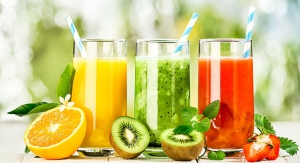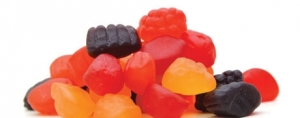Sean Moloughney, Editor05.27.14
A majority of European consumers are believers in positive nutrition, with 56% using food/drink to improve health, according to a 2014 Datamonitor Consumer Survey presented by the firm’s head of food and drink Mark Whalley at Vitafoods Europe in Geneva, Switzerland. Women (60%) are slightly bigger believers than men (51%).
The survey also showed 19% of Europeans consume functional foods at least a few times a week, which is more than potato chips or ice cream. Additionally, 16% consume functional drinks at least a few times a week.
Nearly three-quarters of consumers said they are not loyal to specific brands (69% for functional foods; 72% for functional drinks). “There is an absolute wealth of opportunity to build up your brand within the functional food/drink space,” said Mr. Whalley.
About 10% of consumers claim to purchase at the “premium” end of the market for functional foods (9% for functional drinks).
Present Concerns
Tiredness/fatigue (41%) was the top present health concern for European consumers, according to the Datamonitor survey. Stress (39%), insomnia (27%), general sight degeneration (23%), overwork (23%), high/low blood pressure (23%), near-sightedness (23%), snoring (23%), depression (21%) and restlessness (20%) rounded out the top 10.
Obesity, diabetes, high cholesterol, cold/flu, indigestion and heartburn are notably absent from this list, Mr. Whalley said. “We are tired, stressed and restless. Is this entire market for energy products doing more harm than good? Is this just the Band-Aid covering up an underlying issue?”
Mr. Whalley went on to note a potential opportunity for calming products that might be positioned as a solution to this everyday need.
Future Concerns
Looking ahead, general sight degeneration (25%) topped the list of future concerns among Europeans aged 15-34. Memory loss (24%), depression (21%), cold/flu (21%), high/low blood pressure (20%), high cholesterol levels (20%), stress (20%), infertility (20%), overwork (19%) and diabetes (19%) rounded out the top 10.
Mr. Whalley again noted a “worrying lack of concern” for major health conditions like osteoporosis, arthritis and irritable bowel syndrome. “We’re an aging society yet young Europeans don’t appreciate these conditions may affect them in the future.”
For example, diabetes is 10th on the list of future concerns but may potentially be the “highest profile health concern over the next 10 years,” Mr. Whalley noted. “People are sleep walking into this crisis. Consumers are failing to understand future health concerns of an aging population.”
Ultimately though, there is an undoubted link between health and nutrition; and consumers are looking to address the former with the latter. Functional consumers are open to new brands, and many are willing to pay a premium. However, the industry needs to do get more “granular” with health claims.
Regionally, Eastern Europe may offer some unique opportunities, Mr. Whalley added, and young females will likely drive growth.
Moreover, targeting consumers’ needs to relax, and pushing the idea of “food as medicine” will serve the industry well over the long-term, he said.
The survey also showed 19% of Europeans consume functional foods at least a few times a week, which is more than potato chips or ice cream. Additionally, 16% consume functional drinks at least a few times a week.
Nearly three-quarters of consumers said they are not loyal to specific brands (69% for functional foods; 72% for functional drinks). “There is an absolute wealth of opportunity to build up your brand within the functional food/drink space,” said Mr. Whalley.
About 10% of consumers claim to purchase at the “premium” end of the market for functional foods (9% for functional drinks).
Present Concerns
Tiredness/fatigue (41%) was the top present health concern for European consumers, according to the Datamonitor survey. Stress (39%), insomnia (27%), general sight degeneration (23%), overwork (23%), high/low blood pressure (23%), near-sightedness (23%), snoring (23%), depression (21%) and restlessness (20%) rounded out the top 10.
Obesity, diabetes, high cholesterol, cold/flu, indigestion and heartburn are notably absent from this list, Mr. Whalley said. “We are tired, stressed and restless. Is this entire market for energy products doing more harm than good? Is this just the Band-Aid covering up an underlying issue?”
Mr. Whalley went on to note a potential opportunity for calming products that might be positioned as a solution to this everyday need.
Future Concerns
Looking ahead, general sight degeneration (25%) topped the list of future concerns among Europeans aged 15-34. Memory loss (24%), depression (21%), cold/flu (21%), high/low blood pressure (20%), high cholesterol levels (20%), stress (20%), infertility (20%), overwork (19%) and diabetes (19%) rounded out the top 10.
Mr. Whalley again noted a “worrying lack of concern” for major health conditions like osteoporosis, arthritis and irritable bowel syndrome. “We’re an aging society yet young Europeans don’t appreciate these conditions may affect them in the future.”
For example, diabetes is 10th on the list of future concerns but may potentially be the “highest profile health concern over the next 10 years,” Mr. Whalley noted. “People are sleep walking into this crisis. Consumers are failing to understand future health concerns of an aging population.”
Ultimately though, there is an undoubted link between health and nutrition; and consumers are looking to address the former with the latter. Functional consumers are open to new brands, and many are willing to pay a premium. However, the industry needs to do get more “granular” with health claims.
Regionally, Eastern Europe may offer some unique opportunities, Mr. Whalley added, and young females will likely drive growth.
Moreover, targeting consumers’ needs to relax, and pushing the idea of “food as medicine” will serve the industry well over the long-term, he said.























